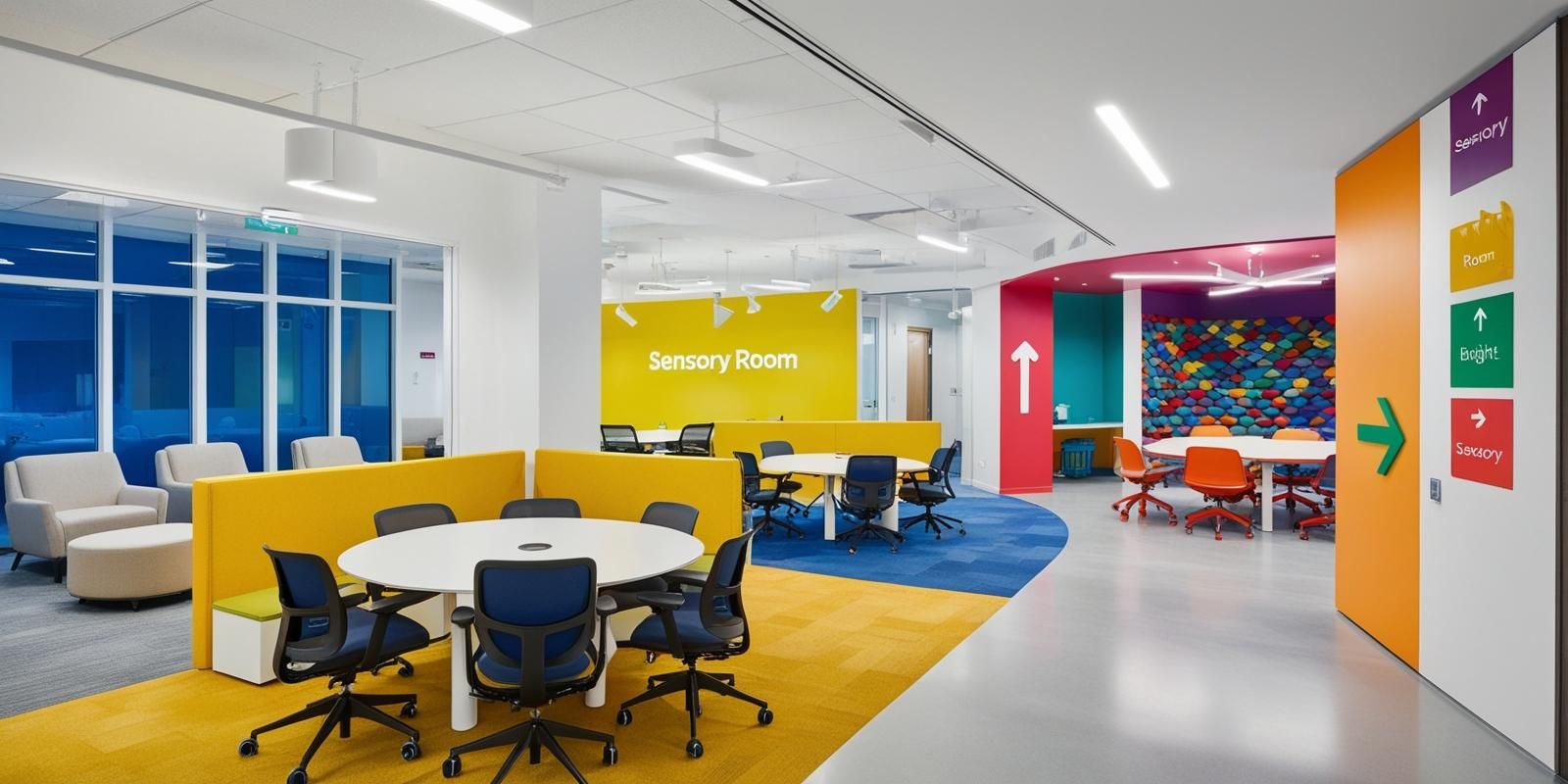Creating Inclusive Workplaces for Neurodivergent Employees

With 1 in 5 people in the UK being neurodivergent, businesses must prioritize creating inclusive environments that support diverse neurological profiles. Neurodivergence, which includes conditions such as autism, ADHD, dyslexia, and others, brings unique strengths and perspectives to the workplace. By fostering inclusivity, companies can unlock untapped potential, drive innovation, and build stronger, more adaptive teams.
Understanding Neurodiversity in the Workplace
Neurodiversity refers to the natural variation in human brain function and behavioral traits. While neurodivergent individuals may face challenges in traditional work settings, they often possess exceptional skills such as pattern recognition, creative problem-solving, and attention to detail. However, many workplaces inadvertently exclude neurodivergent talent due to rigid structures, lack of awareness, or unintentional biases.
Creating an inclusive environment starts with recognizing the value of neurodiversity. Companies like JPMorgan Chase and EY have demonstrated that neurodivergent employees can outperform their neurotypical peers in certain roles, achieving higher productivity and innovation.
Strategies for Building Neurodivergent-Inclusive Workplaces
1. Education and Awareness

Awareness is the foundation of inclusivity. Providing training on neurodiversity helps dispel myths, reduce stigma, and foster empathy. Workshops and seminars can educate employees about the strengths and challenges of neurodivergent colleagues, promoting a culture of understanding.
2. Clear Communication
Neurodivergent individuals often have unique communication preferences. Some may prefer written instructions over verbal ones, while others might need additional time to process information. Encouraging open dialogue about communication needs and providing accommodations, such as written meeting summaries or visual aids, can enhance clarity and collaboration.
3. Tailored Workplace Adjustments
Simple accommodations can make a significant difference. Flexible work hours, quiet spaces, and assistive technologies can help neurodivergent employees thrive. For example, noise-canceling headphones or screen-reading software can reduce sensory overload and improve focus.
4. Inclusive Recruitment Practices
Traditional hiring processes often disadvantage neurodivergent candidates. Redesigning interviews to focus on skills rather than social traits can level the playing field. Companies like Goldman Sachs and Google Cloud have implemented neurodiversity hiring initiatives, offering training and mentorship to support candidates throughout the recruitment process.
5. Leadership Commitment
Inclusion starts at the top. Leaders must champion neurodiversity and create a culture where all employees feel psychologically safe to express their ideas. Senior leadership buy-in is crucial for driving organizational change and ensuring that neuroinclusion becomes a core value.
Benefits of Neurodiversity in the Workplace
1. Increased Innovation and Creativity
Neurodivergent individuals often think outside the box, offering fresh perspectives and innovative solutions. Their unique cognitive styles can lead to breakthroughs in problem-solving and product development.
2. Enhanced Productivity
Studies have shown that neurodivergent employees can be more productive and accurate in certain roles. For instance, JPMorgan Chase found that participants in its Autism at Work initiative were 90% to 140% more productive than their neurotypical peers.
3. Improved Employee Engagement
Inclusive workplaces foster a sense of belonging, leading to higher levels of employee satisfaction and retention. When neurodivergent employees feel valued and supported, they are more likely to contribute their best work.

4. Access to a Diverse Talent Pool
By embracing neurodiversity, companies can tap into a broader talent pool. This not only enhances organizational capabilities but also strengthens the company’s reputation as an inclusive employer.
5. Positive Brand Reputation
Organizations that prioritize diversity and inclusion often enjoy a positive public image. Customers, clients, and partners are increasingly drawn to companies that demonstrate social responsibility and commitment to equity.
Case Studies: Leading the Way in Neuroinclusion
EY
EY has established regional and international hubs dedicated to neurodiversity, creating centers of excellence that promote dialogue and collaboration. The company’s neurodiversity-powered transformation initiative has integrated diverse skillsets to drive innovation and client satisfaction.
JPMorgan Chase
Since 2015, JPMorgan Chase’s Neurodiversity Hiring Program has grown to include 10 lines of business across multiple countries. The program has successfully placed neurodivergent employees in roles ranging from software engineering to personal banking, demonstrating the value of tailored support and mentorship.
Rolls-Royce and Coca-Cola Europacific Partners
Both companies have implemented Neurodiversity Toolkits, providing resources and guidance to cultivate inclusive practices. These toolkits offer practical solutions for accommodating neurodivergent employees and fostering a supportive work environment.
Conclusion
Creating inclusive workplaces for neurodivergent employees is not just a moral imperative—it’s a strategic advantage. By embracing neurodiversity, companies can unlock a wealth of talent, drive innovation, and build stronger, more adaptive teams. Through education, tailored accommodations, and inclusive recruitment practices, organizations can foster environments where everyone has the opportunity to thrive.
As we move toward a more inclusive future, let’s celebrate the unique strengths of neurodivergent individuals and create workplaces where diversity is not only accepted but celebrated. Together, we can build a more equitable and successful world for all.